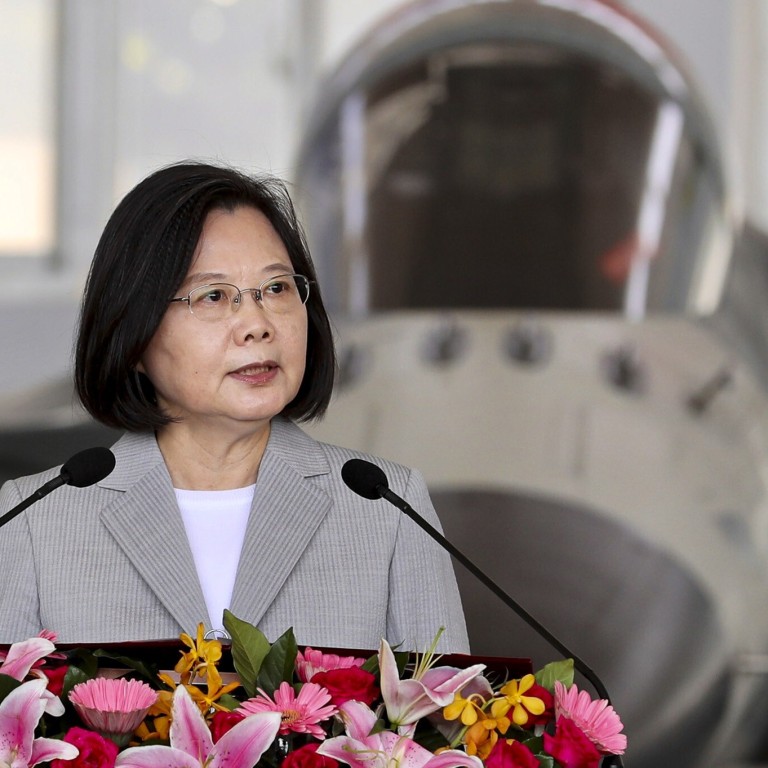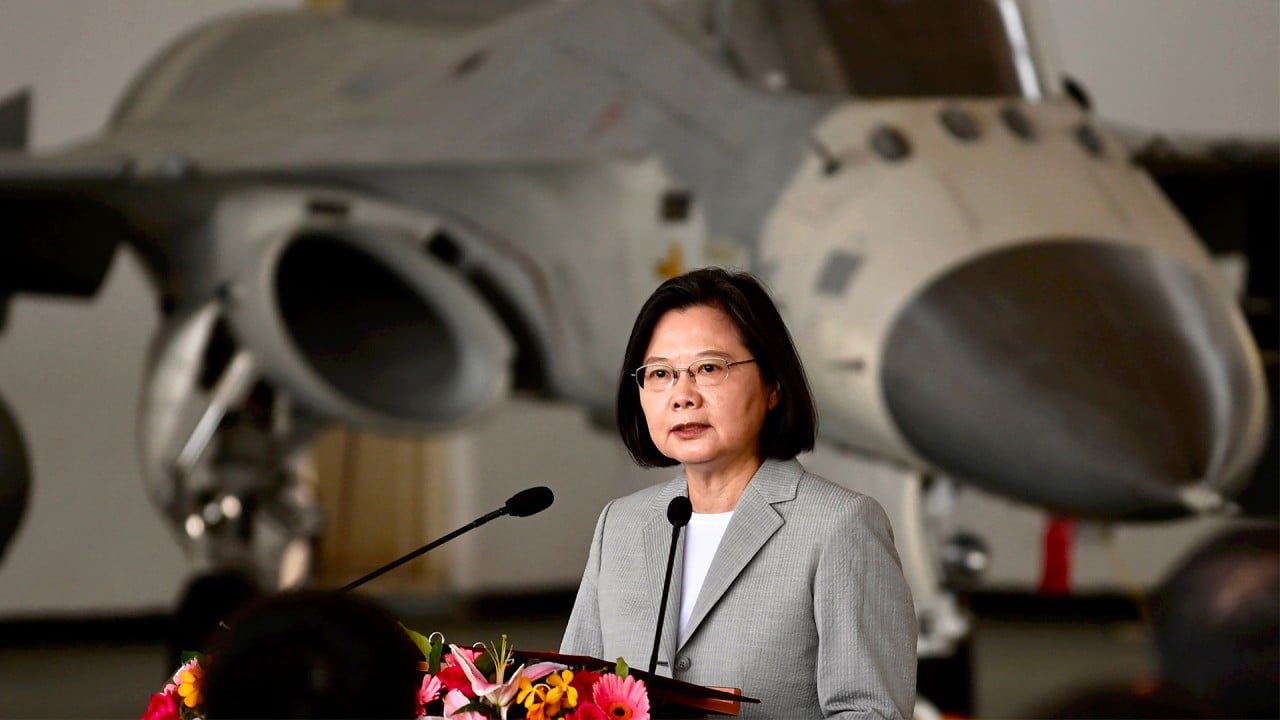
Taiwanese president Tsai Ing-wen visits military base after PLA ‘provocations’
- Taiwan has the ‘ability’ and ‘resolve’ to safeguard its territory, she tells about a hundred pilots and crew members
- It follows last week’s show of force by Beijing during a trip to the island by a high-level US envoy
Tsai spoke to about a hundred pilots and crew members at the Penghu Magong Air Force Base, where two pilots took off in Taiwan-produced Ching-kuo Indigenous Defence Fighters to greet her arrival.
Taiwan had the “ability” and “resolve” to safeguard its territory, she said.
“I know that having to face the provocations of the People’s Liberation Army surrounding Taiwan, and their actions in disturbing the area’s peace, in the situation, everyone’s duty at the frontline air defence at Penghu has become heavier,” Tsai said.
“But I have faith in every individual, that every one of our well-trained air force brothers and sisters is able to lift this heavy responsibility,” she said.

00:56
Taiwanese President Tsai Ing-wen visits military base following PLA ‘provocations’
Beijing considers Taiwan part of its national territory and objects to all official contact between other countries and Taipei.
It has increased its diplomatic and military pressure on Tsai’s government over her refusal to agree to Beijing’s insistence that the island be considered a part of Chinese territory. The vast majority of Taiwanese reject the prospect of political union with the mainland under the “one country, two systems” framework in place in Hong Kong.
While China’s armed forces have an overwhelming numerical advantage over Taiwan, the island’s small but well-trained hi-tech force enjoys strong support from the United States, Taipei’s chief ally.

